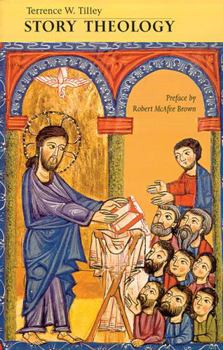Book Overview
Story Theology shows how narratives provide the central and distinctive structure and content of Christian faith. Tilley begins by showing the importance of understanding stories as carrying the substance of faith. He then analyzes and retells the central stories of Christianity--those of and about Jesus. But if these stories are to live on in the world after Jesus' time, they must be lived in and lived out by Jesus' followers. Hence, Tilley tells stories of model disciples--saints--who show how Christians are to live as Christians in and for the world, how to be disciples, members of the Body of Christ. Yet stories may be misleading and destructive as well as enlightening and freeing. So, the final chapter tells how to evaluate the truth and truthfulness of stories. Story Theology portrays Christianity as an on going variegated way of life and thought.





